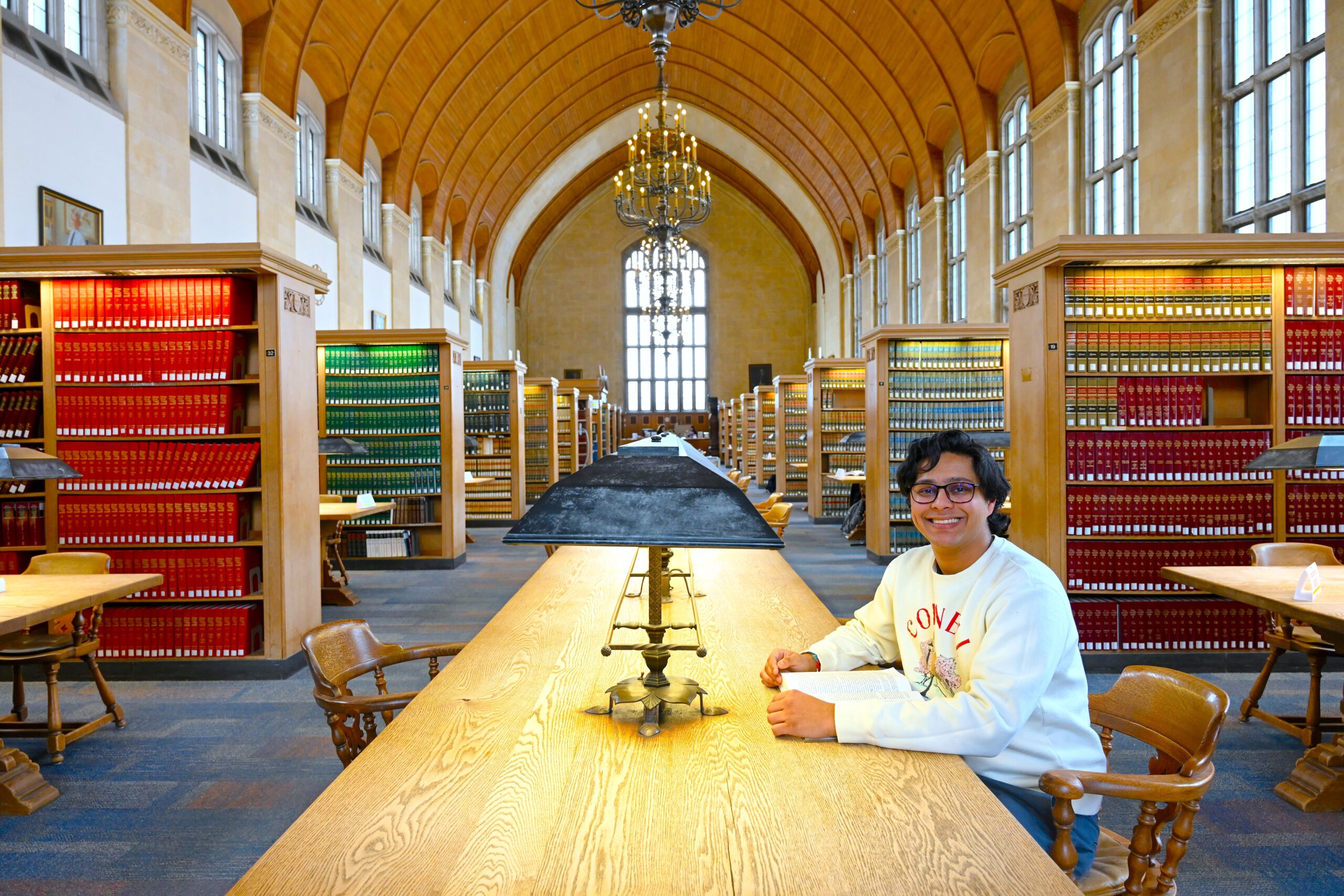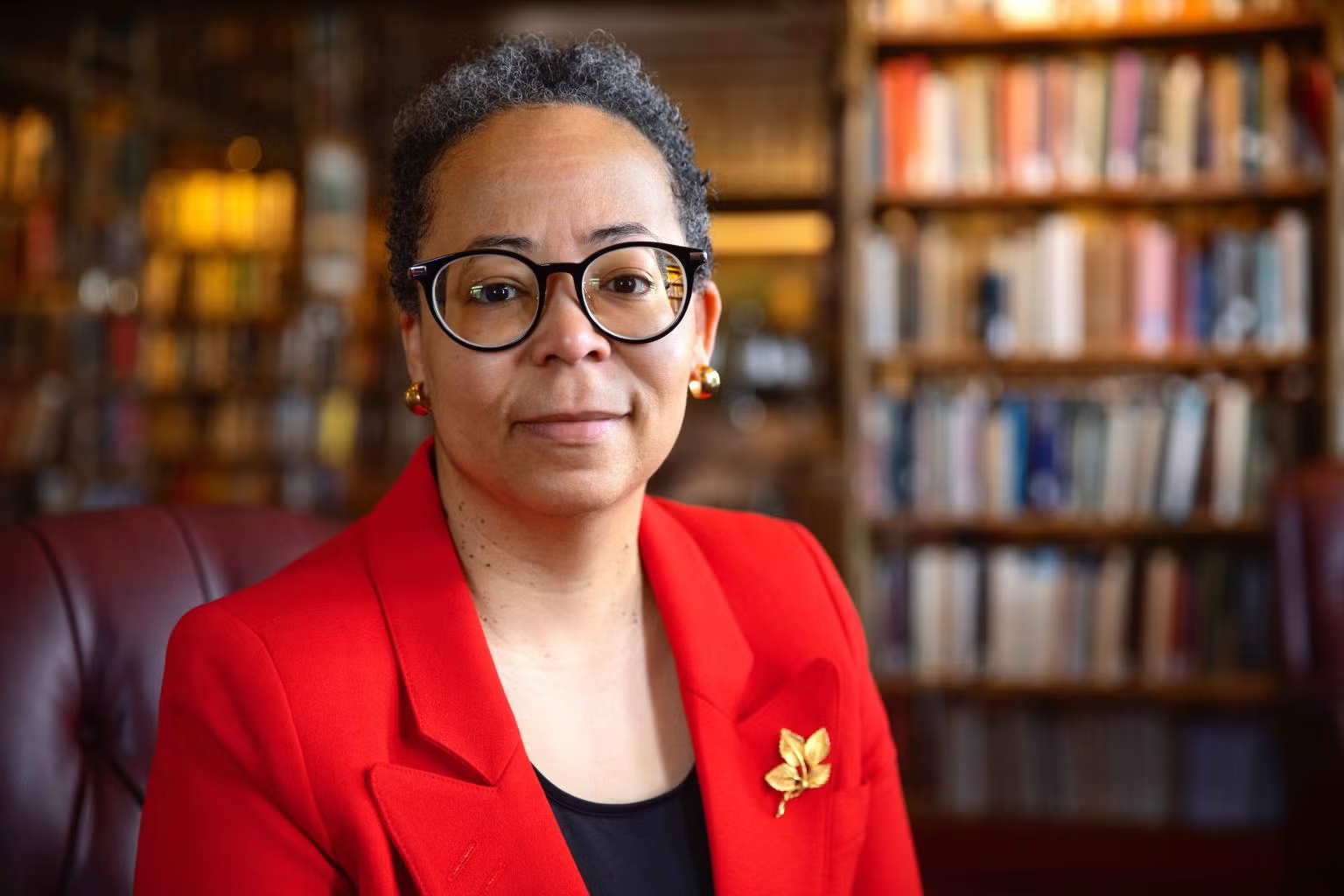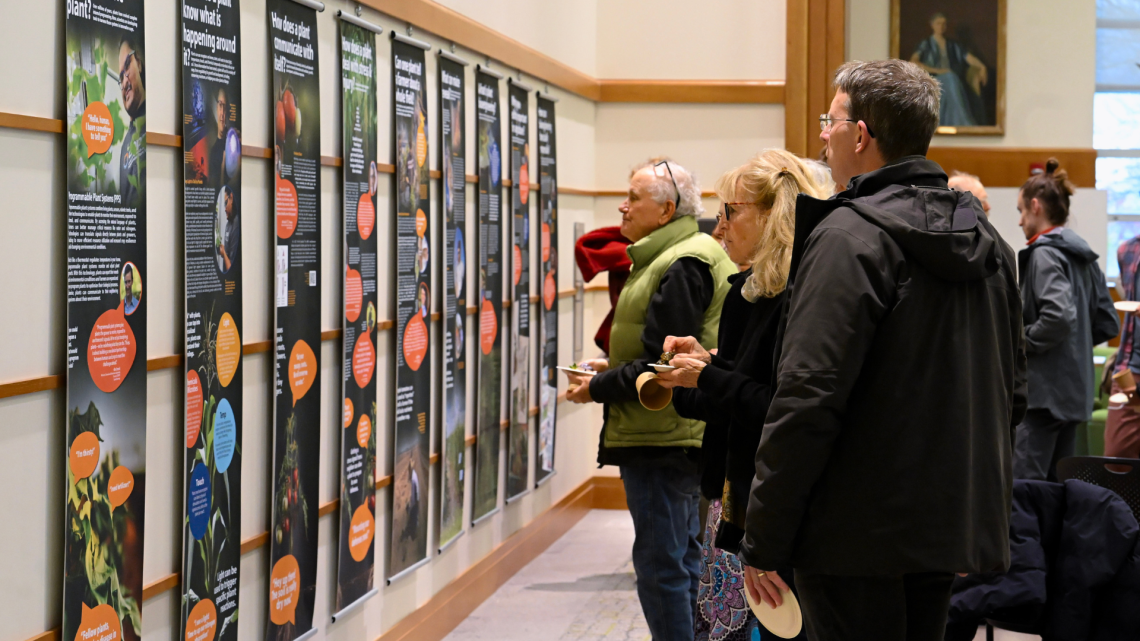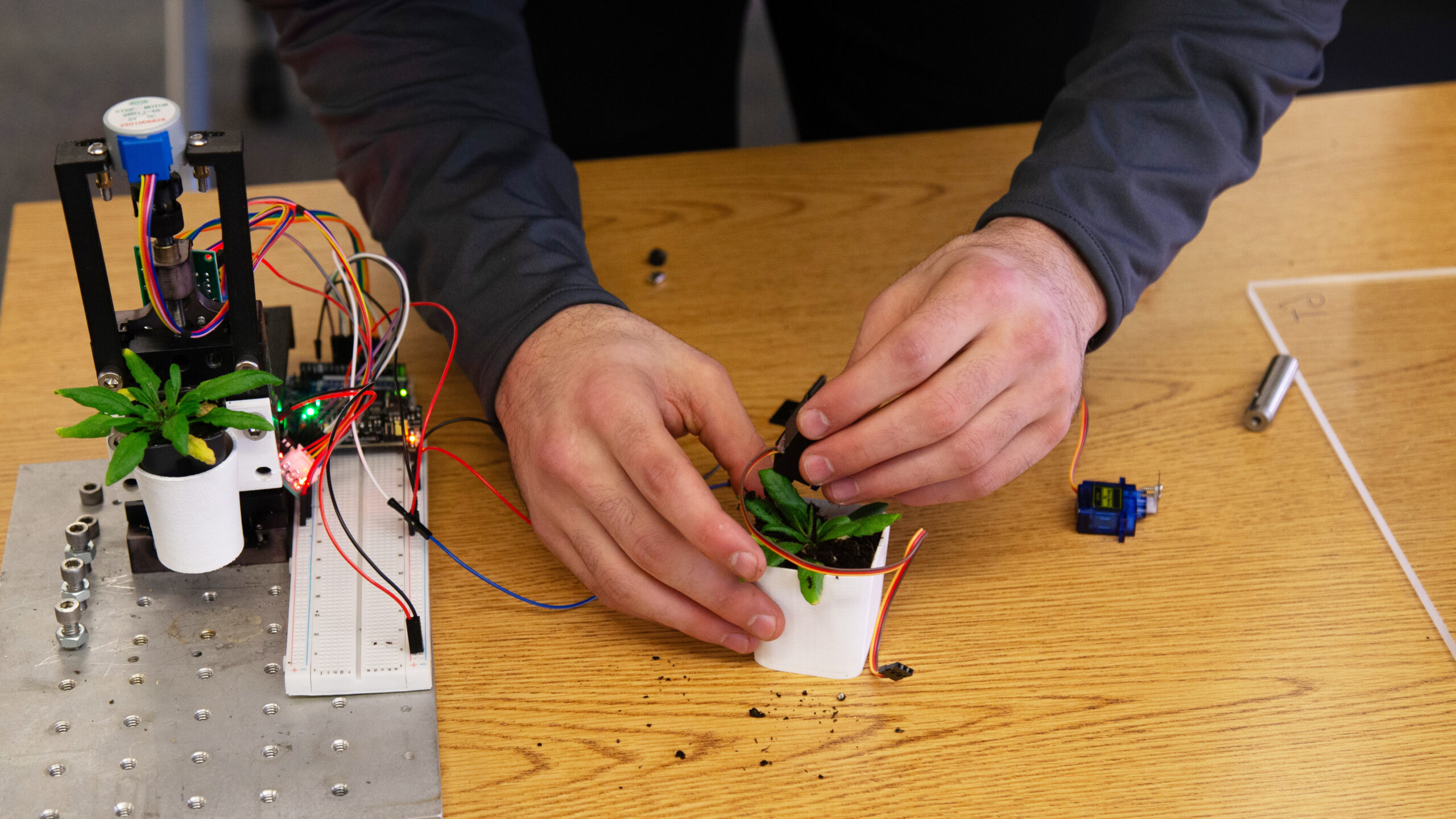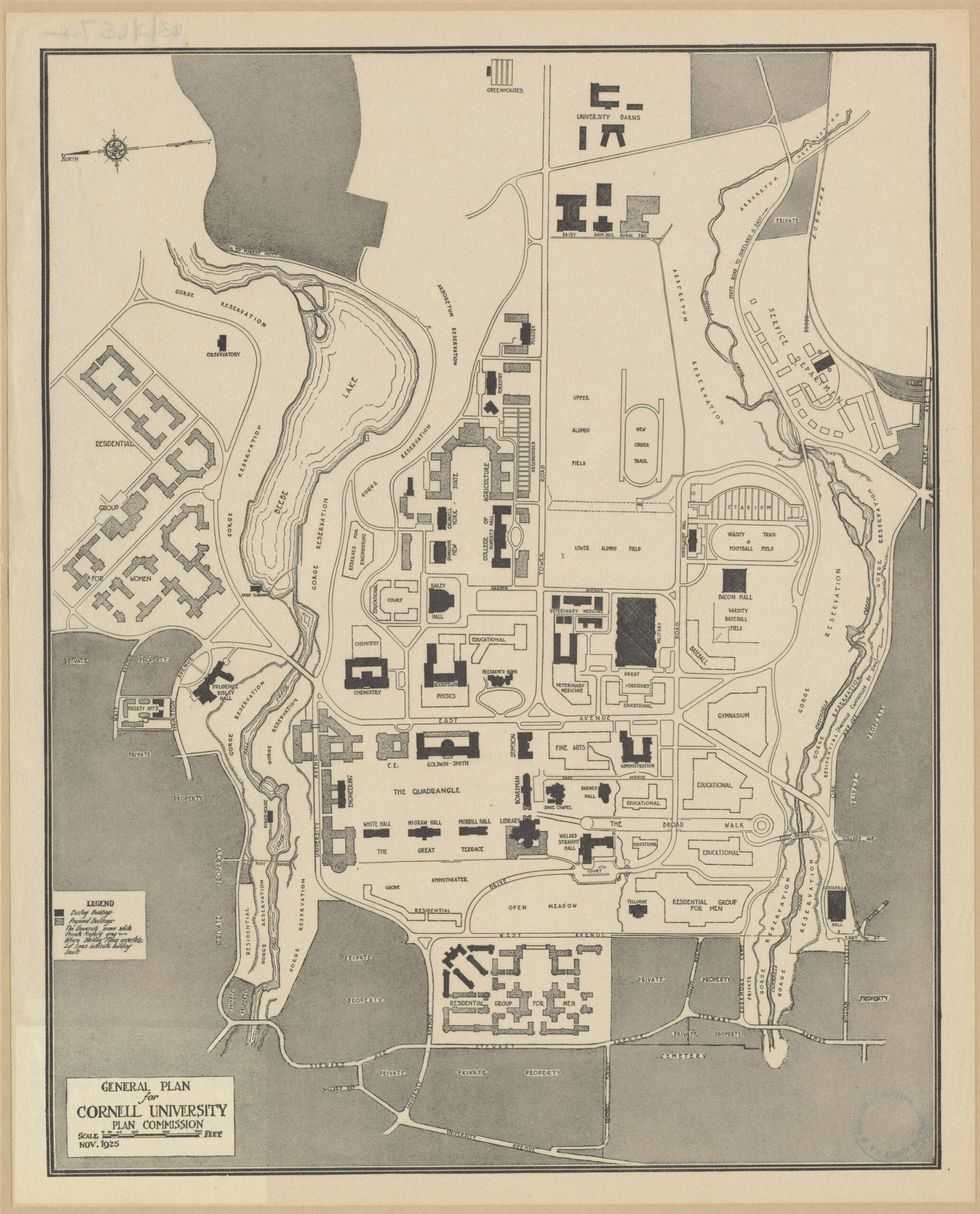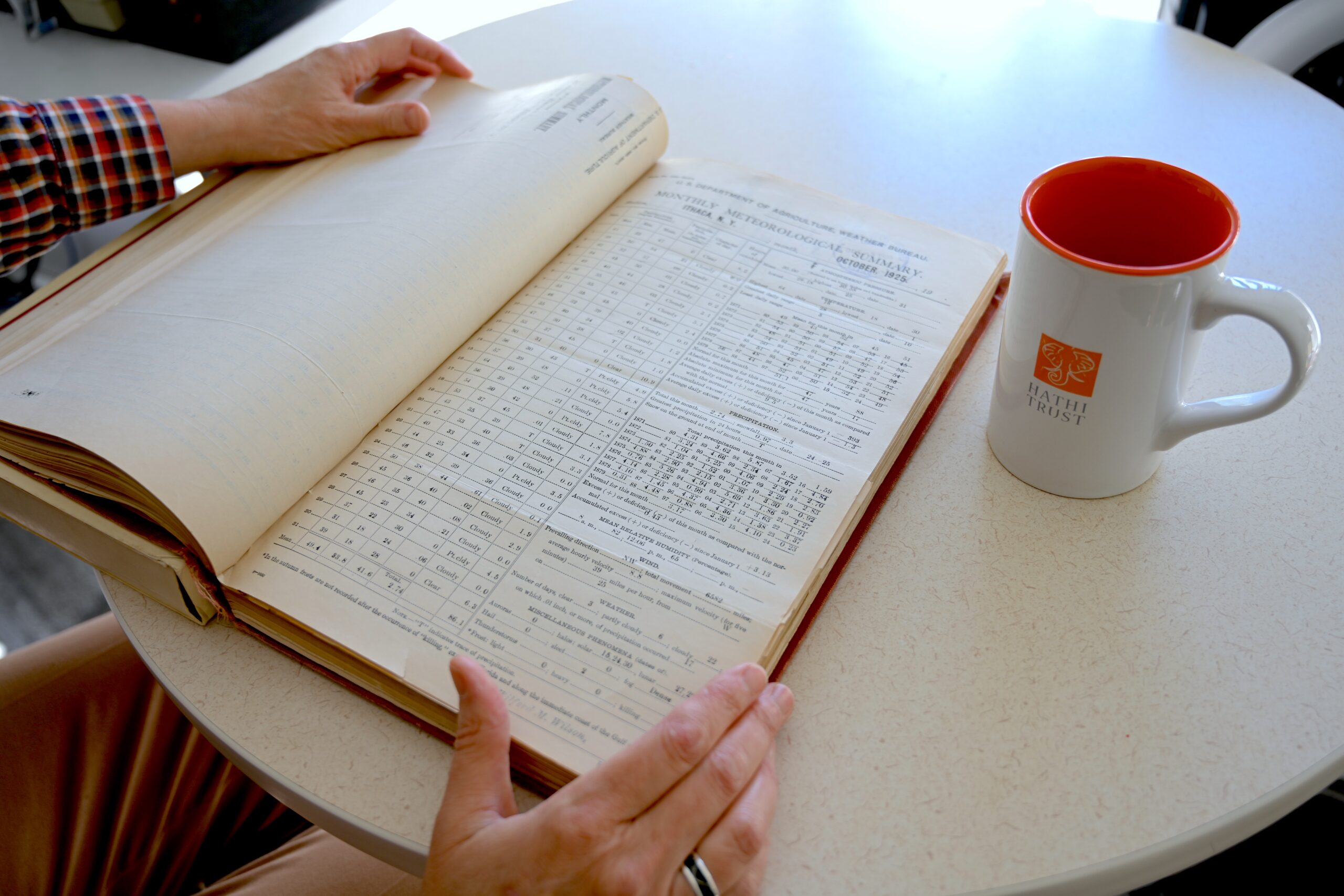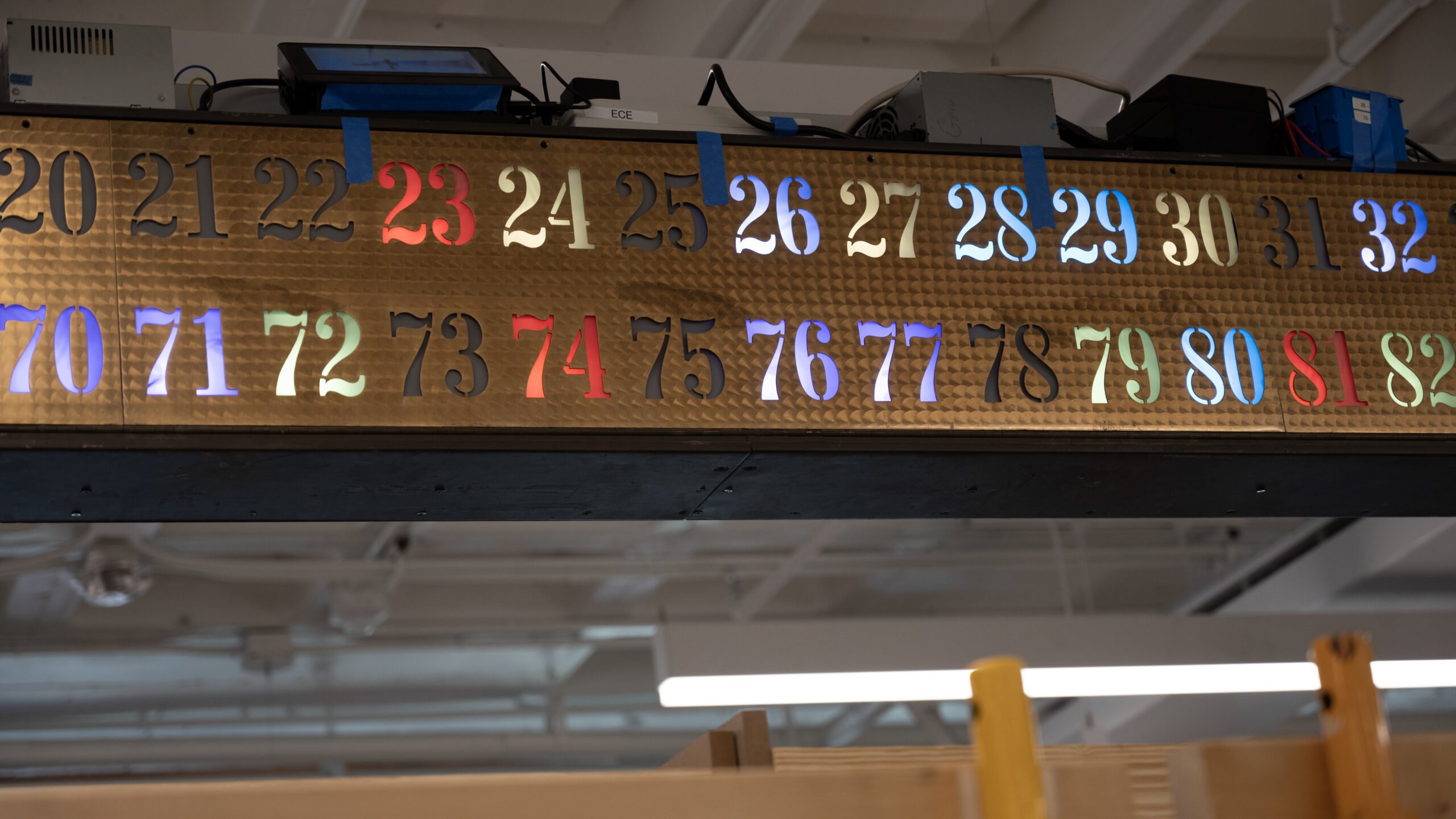
From when Olin Library first opened in 1961 until the mid-’90s, only library employees were allowed in the stacks, and a numbered call board above the circulation desk informed waiting students that the books they requested were ready.
On Aug. 27, this iconic call board will serve a special purpose: displaying winning numbers to a raffle during Olin Library’s reopening celebration, from noon to 2 p.m. The event marks the completion of a major renovation to modernize access and spaces of Olin’s first and lower floors. Construction for the project began in December 2024.

The reopening celebration also features a welcome speech at 12:15 p.m. by Elaine L. Westbrooks, Carl A. Kroch University Librarian, and open houses for the new Anthropology Collaboratory at 1 p.m. and the Cornell University Library Map Collection at 1:30 p.m.
Joe Skovira, Ph.D. ’90, professor of practice in the School of Electrical and Computer Engineering at Cornell Engineering, and his students repurposed the iconic call board into a computer-controlled display that can be programmed in different ways, from telling time to generating random numbers for the raffle. For Skovira, the repurposed call board symbolizes expanded student access to the library over the years. “There’s an interesting irony that’s happened here, where – if you go back to the original story – they wouldn’t let the students up there to get the books, but now who’s fixing the call board?” he said with a smile.

“Seeing the call board light up again – something that so many people have memories of – made it feel like more than just a technical challenge,” said Anushka Matthew, M.Eng.’25, who was part of the student team. “It was a way of preserving history while giving it a new purpose, and I’m really grateful that the librarians trusted us to bring it back to life.”
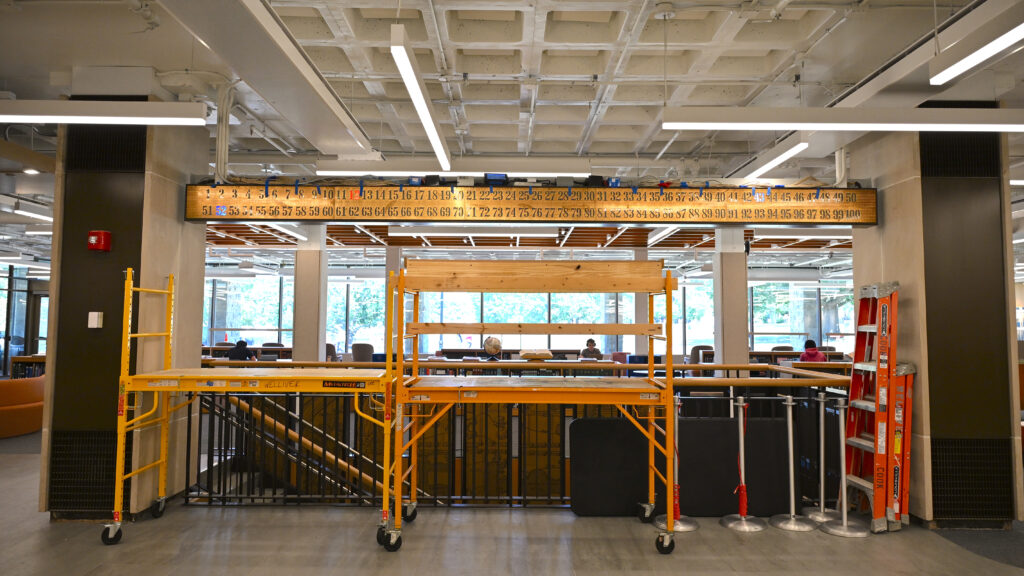
On Olin Library’s first floor, improvements include combining the help desk and circulation desk into one convenient service point for patrons; opening the floorplan to make it more inviting and accessible; creating a dedicated room for walk-in research consultations; and building an entrance from the Arts Quad.
On the basement level, the library renovated the entrance to the Map Collection, and created a new student commons and a space for the Anthropology Collaboratory, which houses several collections and groups formerly located in McGraw Hall, including the Anthropology and Cornell Institute of Archaeology & Material Studies (CIAMS) Collections and the Hodinǫ̱hsǫ́:nih Archaeology Lab.
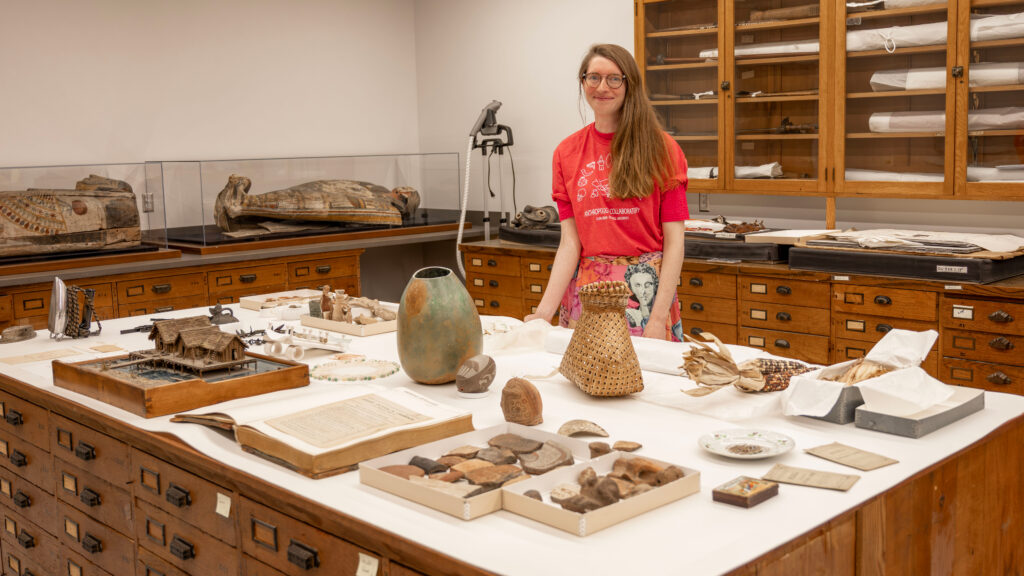
“We are so excited to celebrate the grand reopening of Olin Library, and happy to call the library home,” said Alison Rittershaus, lecturer and curator of the Anthropology Collections in the College of Arts and Sciences. “There is so much resonance between what we hope to accomplish with the collaboratory and the mission of the library, and being connected to the dynamic library ecosystem promises to broaden our ability to collaborate and make our work more visible and impactful.”
Visitors to the collaboratory’s open house will see examples of material currently being studied, from animal bones and pottery to stone tools and statuettes, and chat with faculty and students about their ongoing research, Rittershaus said.
At the Map Collection open house, visitors will see a wide variety of maps on display, including historic maps of Cornell, a “jazz map” of Queens, and early maps of the internet. “Map room visitors are always surprised by the depth and breadth of our map collection, and we look forward to sharing some of that scope during the open house,” said Rob Kotaska, reference desk and map collection coordinator.
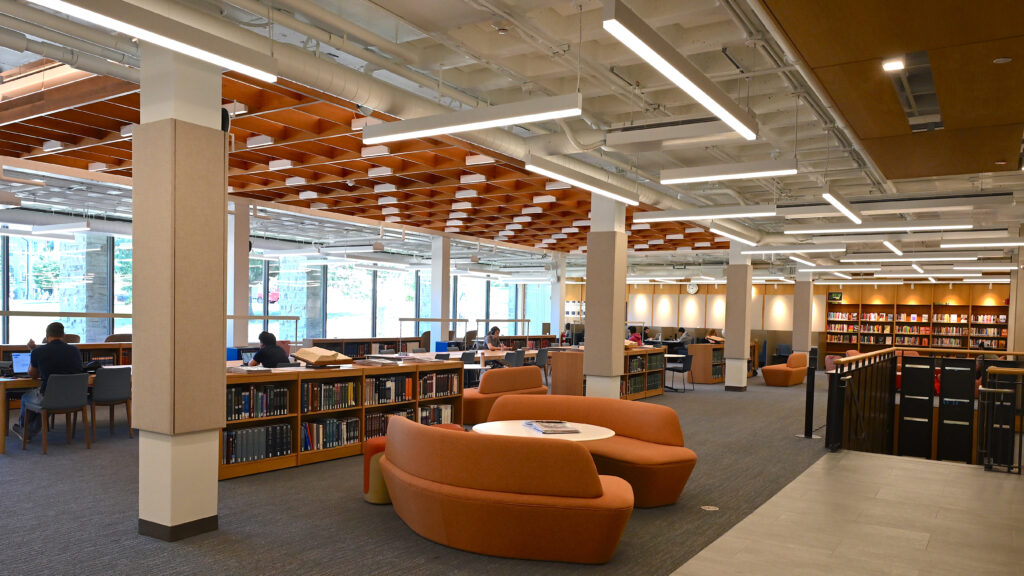
Public engagement and community involvement in the renovation were crucial from the start, said Jon Ladley, facilities director for Cornell University Library. The initial phase of the renovation project began in 2019 with brainstorming sessions and a feasibility study.
“We sought input from all members of the Cornell community on how to transform the lower levels of the building into a more welcoming and connected space,” Ladley said. “Everything from furniture selection to the repurposing of the historic call board was achieved via community participation.”
This story also appeared in the Cornell Chronicle.
